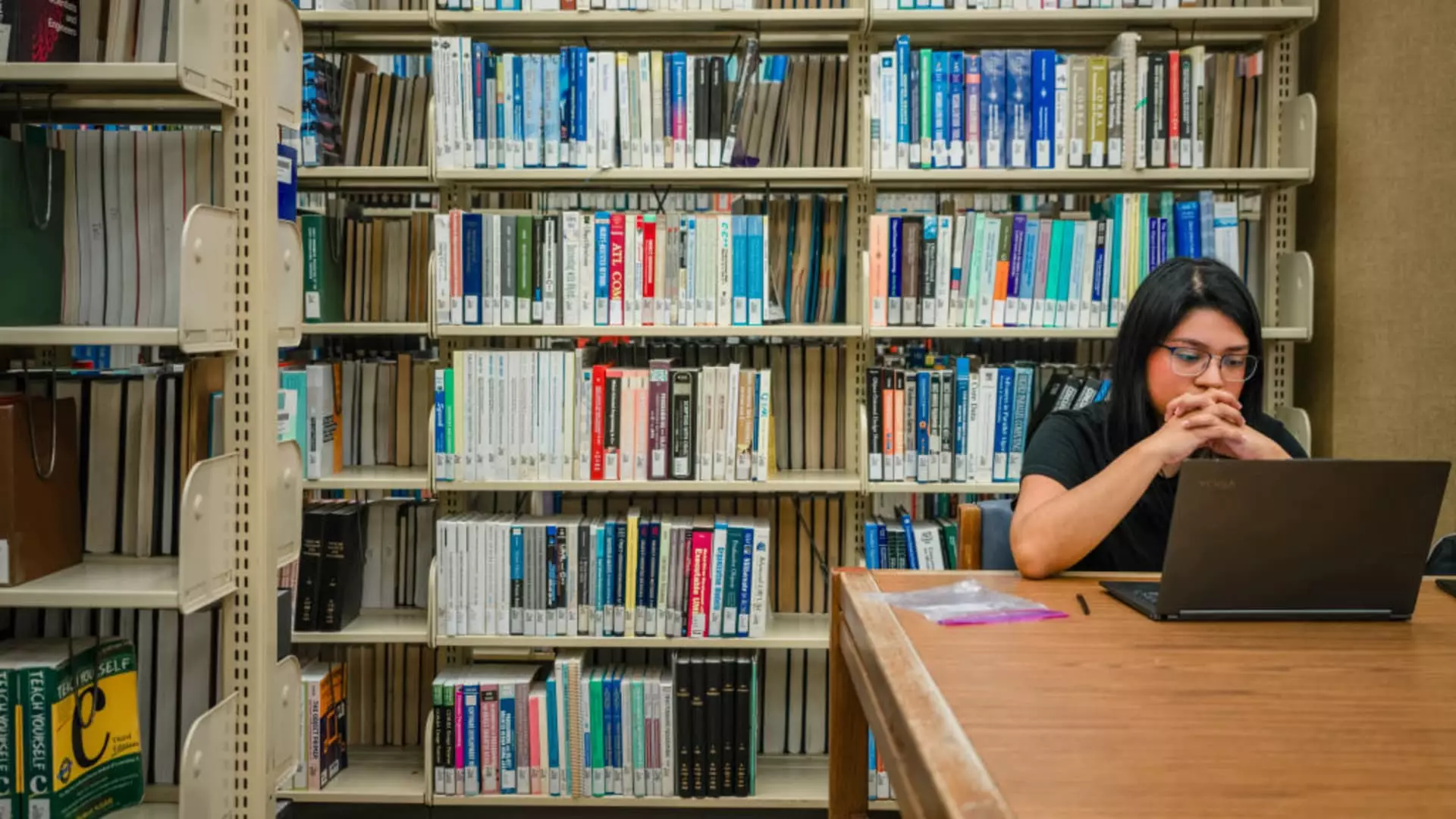The recent decision by the Trump administration to reactivate the collection of defaulted federal student loans has ignited a storm of concern among borrowers who are already in precarious financial situations. The resumption of these collections is more than just a bureaucratic decision; it represents a regressive step back into the throes of financial despair for millions of Americans. For individuals in default, wages and tax refunds can be garnished, with a risk of further entrenchment into financial turmoil. This Draconian approach doesn’t just stop at student loans; it creates a ripple effect that could jeopardize the financial stability of borrowers across multiple facets of their lives.
Research from the Federal Reserve Bank of New York highlights the potential “spillover effect” that these collections could manifest, where struggling borrowers may find themselves unable to keep up with other debts, such as credit card bills or car loans. The message that rings loud and clear is that this isn’t just about student loans—it’s about real lives being upended and the broader financial ecosystem becoming destabilized.
Economic Implications: A Dismal Outlook
With the U.S. Department of Education’s aggressive push to collect on past debts, consumer finances could be significantly dented in ways that are both immediate and long-lasting. According to a report from JPMorgan, monthly collections on defaulted loans could siphon between $3.1 billion and $8.5 billion out of the economy. This staggering amount raises alarms not just about individual financial health but also about the broader economic implications where disposable income shrinks, inevitably leading to less consumer spending—an essential pillar of economic growth.
Understanding these dynamics, it becomes clear why researchers like Ted Rossman of Bankrate are sounding the alarm. The necessity to divert funds into student loan repayments can lead borrowers to load up on additional credit card debt to maintain their living standards, perpetuating a cycle of debt that is difficult to escape. This raises fundamental questions about the ethics of student debt management in the United States.
A Systematic Disconnect
It’s glaringly evident that the student loan repayment system is rife with flaws that disproportionately impact vulnerable populations. Recent statistics showing that nearly 8% of total student debt is now reported as 90 days past due following the end of the payment pause speaks volumes about this systemic disconnect. The sheer number of Americans holding federal student loans—and the alarming rate of those in default—paints a dismal picture. With roughly 42 million Americans bearing this burden, the policies put in place fail to recognize the cascading effects on borrowers’ quality of life and mental well-being.
The notion that millions of borrowers should simply “catch up” on payments after years of financial strain lacks empathy and seems oblivious to the realities faced on the ground. As the data shows, one in four borrowers is currently delinquent on payments—not due to negligence, but likely stemming from economic realities exacerbated by the pandemic.
The Path to Resolution: A Fleeting Hope?
While the Biden administration has attempted to navigate this complex issue with a year-long shield from drastic consequences for borrowers, the expiration of that on-ramp has come too soon for many. The consensus among financial experts, as indicated by a separate report from Bank of America, is that the transition out of forbearance is fraught with risk. Borrowers may confront increasing delinquencies and defaults that can reverberate through the entire consumer finance sector.
As discussions about debt forgiveness and financial reform emerge, one can only hope that they learn from the mistakes of this current approach. The conversation needs to evolve beyond simple debt collection into a more humane understanding of borrowers’ circumstances and the structural changes necessary to avoid repeating such painful experiences in the future.
This period should serve as a clarion call not only for policymakers but also for society as a whole. If we don’t acknowledge the plight of student loan borrowers and the severe implications of delinquency, we risk building a generation shackled by the burdens of their education—a bleak future for those who sought knowledge and a path to prosperity. The current trajectory of student loan management calls for a reevaluation that prioritizes compassion and economic stability.

